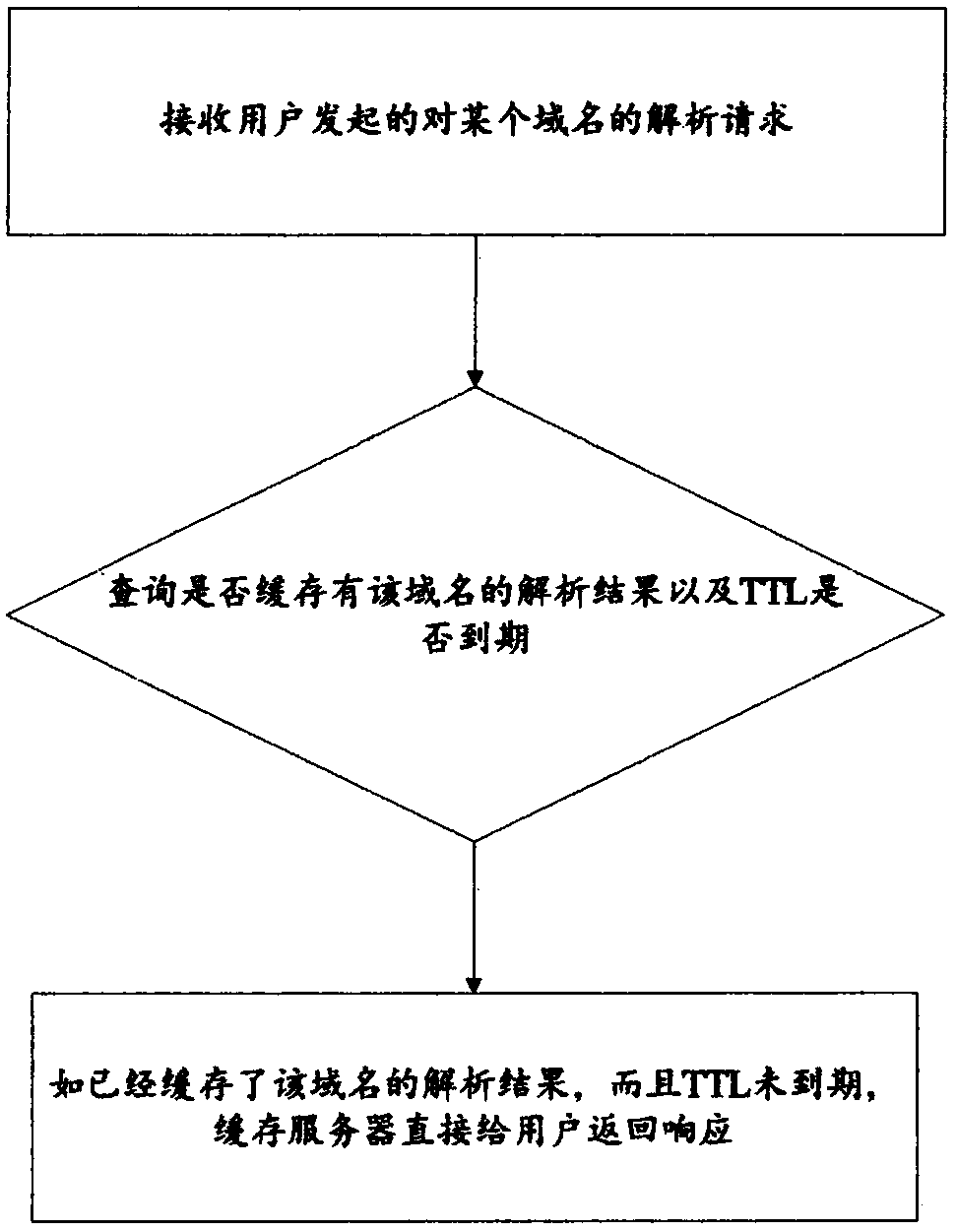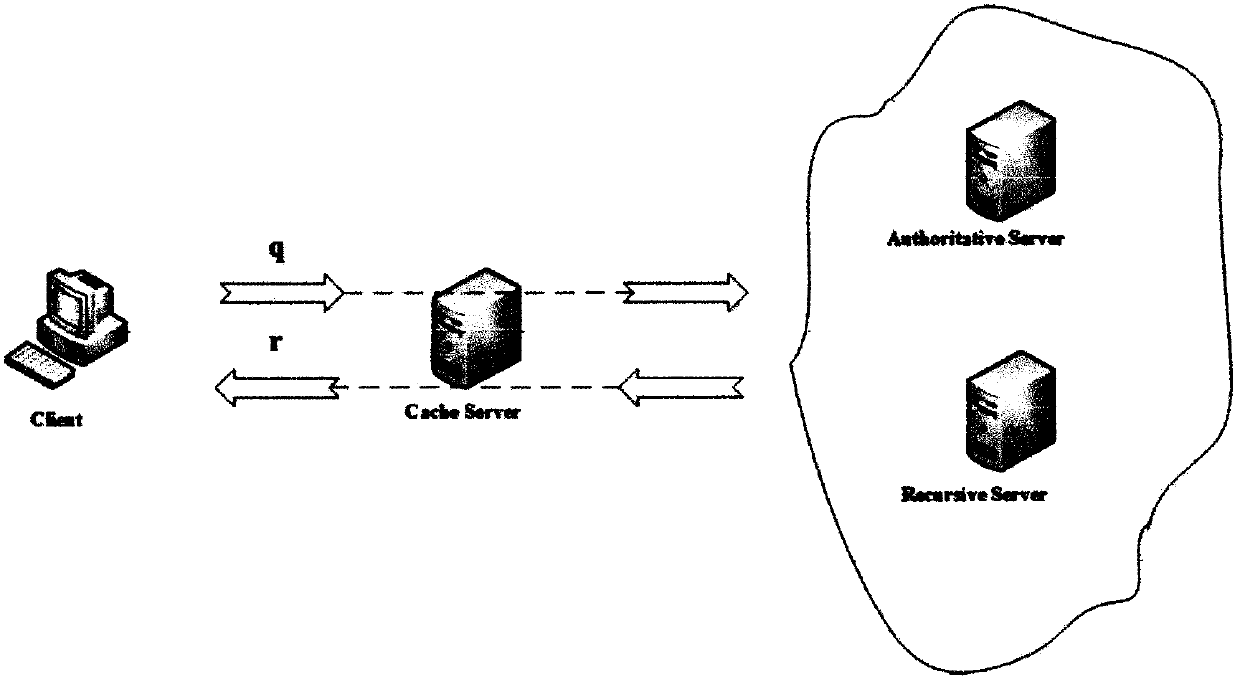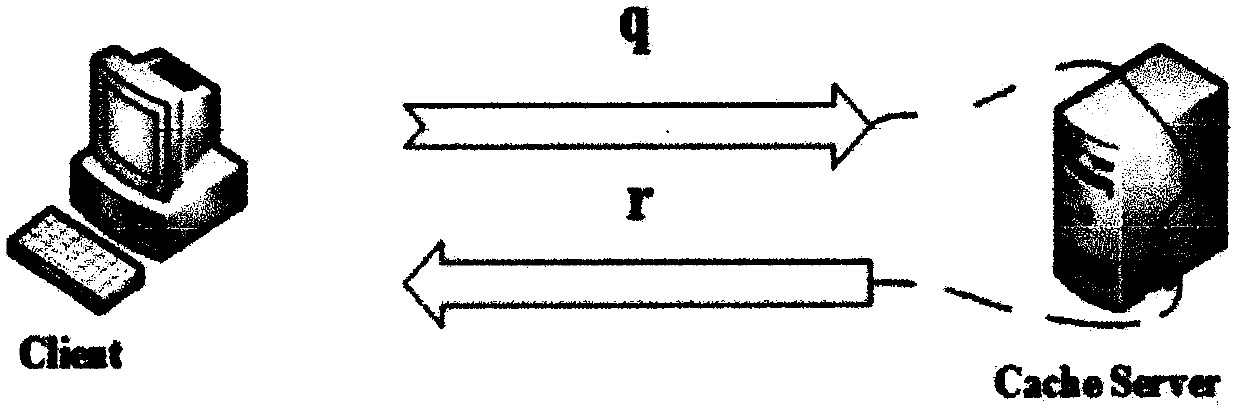A domain name resolution method and system based on dns cache residency
A domain name resolution system and domain name resolution technology are applied in the field of domain name resolution methods and systems based on DNS cache residency, which can solve problems such as the deterioration of authoritative server and recursive server failures, the failure of domain name resolution to resolve normally, and the inability of users to surf the Internet normally. Good technical effect, the effect of improving the speed
- Summary
- Abstract
- Description
- Claims
- Application Information
AI Technical Summary
Problems solved by technology
Method used
Image
Examples
Embodiment 1
[0046] Such as figure 1 As shown, a domain name resolution method based on DNS cache residency, including:
[0047] Receive a resolution request for a domain name initiated by a user;
[0048] Query whether the resolution result of the domain name is cached in the cache server and whether the TTL has expired;
[0049] If the resolution result of the domain name has been cached in the cache of the current cache server, and the TTL has not expired, the cache server returns a response directly to the user.
[0050]After the present invention adopts the above scheme, the DNS cache based on the cache server not only improves the resolution speed, but also when the authoritative server or recursive server resolves abnormally, the cache server can keep the cache and wait for the authoritative server or recursive server to resolve normally. The record of the domain name is updated from time to time, which has a good technical effect.
Embodiment 2
[0052] The present invention will be further described in conjunction with the following embodiments. Specifically, it is preferred that there is no resolution result of the domain name in the cache of the current cache server;
[0053] The cache server transparently transmits the request and sends it to the recursive server or authoritative server;
[0054] The recursive server or authoritative server resolves the domain name and returns a response, and the cache server parses the domain name records in the response and saves them in the cache, and returns the response to the user at the same time.
[0055] Preferably, if the resolution result of the domain name has been cached in the cache of the current cache server, however, the TTL has expired;
[0056] The cache server returns a response to the user first;
[0057] A request is sent to the recursive server or authoritative server, and the recursive server or authoritative server returns a response by normally resolving ...
Embodiment 3
[0061] combine Figure 2-5 The present invention is described in detail, specifically, as figure 1 As shown, it is the first query process. The user initiates a resolution request for a domain name. The current cache server does not have the resolution result of the domain name in the cache. The cache server transparently transmits the request and sends it to the recursive server or authoritative server. The recursive server Or the authoritative server can normally resolve the domain name and return a response. The cache server parses the domain name record in the response and saves it in the cache, and returns the response to the user at the same time, such as figure 1 shown.
[0062] Such as figure 2 As shown in the query process again, in which the user initiates a resolution request for a domain name, the resolution result of the domain name has been cached in the cache of the current cache server, and the TTL has not expired, the cache server directly returns a respons...
PUM
 Login to View More
Login to View More Abstract
Description
Claims
Application Information
 Login to View More
Login to View More - R&D Engineer
- R&D Manager
- IP Professional
- Industry Leading Data Capabilities
- Powerful AI technology
- Patent DNA Extraction
Browse by: Latest US Patents, China's latest patents, Technical Efficacy Thesaurus, Application Domain, Technology Topic, Popular Technical Reports.
© 2024 PatSnap. All rights reserved.Legal|Privacy policy|Modern Slavery Act Transparency Statement|Sitemap|About US| Contact US: help@patsnap.com










